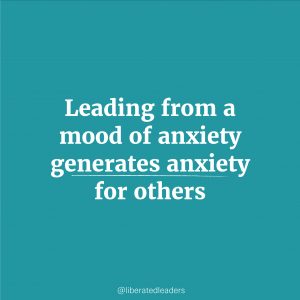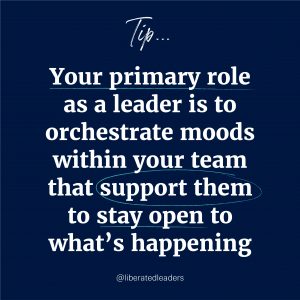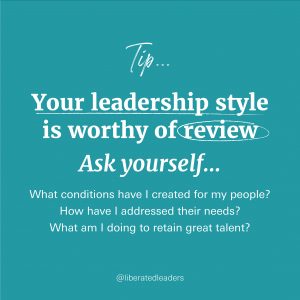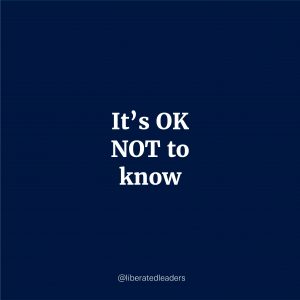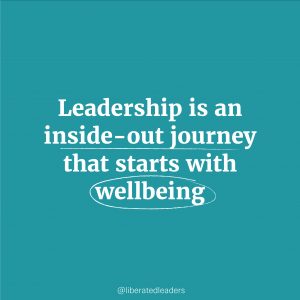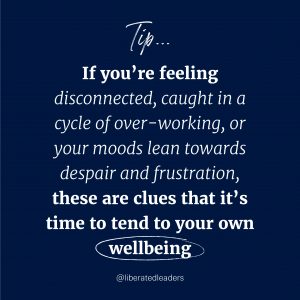Beating The Statistics In A COVID World
Top Trending Posts

How To Retain Talent, Nurture Wellbeing & Achieve Goals
This morning a colleague of ours in the US shared a link to an article in Forbes suggesting that almost 50% of American workers agree that the pandemic has made them rethink the type of job and career they want moving forward, and 53% of American workers say they would retrain for a career in a different field or industry if they had the opportunity.

For the past 18 months we have supported more than 1,000 leaders to navigate change and disruption – and quite remarkably, our practice supports this assertion.
The statistic itself gave us reason to think about why. What’s happening for leaders in these unusual times? Is it a problem, or is it perhaps a sign of liberation?
As transformational practitioners, we of course assess it’s the latter, and we’d like to substantiate the claim and suggest that this trend is one we should welcome.
As pressures on leaders rise, it gives them cause to reassess what’s truly important, and if the things that matter for them are prohibited rather than enabled by work, they begin to ask themselves different questions. We offer five insights about these questions from our vantage point.
Insight 1
Leading from a mood of anxiety generates anxiety for others
Conditions for the past 18 months have accelerated the mood of anxiety. The mood of anxiety arises in the absence of important information. Leaders may want to predict and control the future to alleviate the discomfort of ‘not knowing’. Their inability to predict can manifest as behaviours to bring about certainty in an environment that is unpredictable and changing. Micro-managing, panic, demanding more from an already busy workforce are good examples of these behaviours.
As business people, wanting certainty is a natural preference – it helps us plan, prepare and make decisions, however, cultivating a mindset with certainty as the goal can have disastrous unintended consequences. Staff feeling disempowered, staff unclear on direction, staff not feeling listened to, and staff unable to cope with an increasing set of demands.
Tip for leaders
The times we are living through are unprecedented. Your primary role as a leader is no longer about knowledge and knowing. It is to orchestrate moods within your team that support them to stay open to what’s happening, adapt, respond and approach life’s ‘contingencies’ with an innovative mindset. This relies on your own capacity to stay open to change, accept contingencies, even if you don’t like them, and search for the opportunities that arise in an unfamiliar operating context.
Insight 2
Opting out of high-pressure workplaces is a ‘thing’
During the past 18 months, the majority of the 1,000 leaders we worked with struggled to balance work and life demands. Add to this growing demands from ‘trimmed’ workforces, the blurred lines between work and home and a sense of ‘dis-integration’ of former ways of working – and it’s natural that staff begin to question the meaning of not just work, but life.
There is a point where the questions staff ask themselves err to the side of life. If work is perceived to impinge too much on personal wellbeing, and a sense of personal life, it makes sense that even your best staff will opt out of their current context to preserve what’s important for them.
Tip for leaders
If you are leading a team or organisation, make sure you’re in tune with what’s happening for your people. Initiate wellbeing conversations and tend to their holistic needs, not just their economic needs. Focus on creating the conditions that support each person to achieve what they’re asked to and perform to the standard you expect, which then creates a healthy margin for flexibility. Failing to do this may see you blindsided by a raft of resignations and the loss of your best talent.
Insight 3
Leaders create the weather
Standing in the shoes of the average staff member, no matter their seniority, let’s say, someone with a mortgage and 2 children, the past 18 months has been a strain. Time at home, perhaps home schooling. A series of events and holidays cancelled unless you were the lucky escapee from state and territory. The loss of contact and social connectivity relative to ‘normal’. A desire to work long and hard to ensure job security – often at the detriment of health and wellbeing. Concern for the future and a sense of the merging of work into the home space such that there’s little if any space for self.
If you know yourself to be a demanding, perfectionistic leader, the scenario we describe above means this may be the worst time to add pressure. There’s no ‘give’ in a system like this and if you continue to add to the agenda of your high performers (assuming you might have trimmed your workforce last year), think again. Be mindful they may be on the edge and your next ‘stretch’ request may very well push them over!
Tip for leaders
Your own leadership style is always worthy of review. Why is it you drive yourself and others in the way you do, and what concerns exist behind this kind of behaviour? Leaders set the scene for the game and the unspoken and spoken rules of what’s allowed. They create the mood and this can swing between stormy and sunshine. What conditions have you created for your people? How have you addressed their expressed needs and explored the unexpressed ones? How might a little slowing down to cater for the unique needs of your team members help you to speed up when the times settle? What are you doing to retain your great talent?
Insight 4
It’s OK not to know
Perhaps you were schooled in a time where knowledge = power. In our new era, the digital service era, knowing matters less than know how. Know how manifests as the capacity to stay open to possibility, stay attuned to changes in context, changing customer preferences, and being able to adapt in response to such changes, leading others in moods of confidence and acceptance.
If you’ve been operating by ‘needing to know’, perhaps it’s time to make peace with not knowing. Beware of treating ‘not knowing’ as a weakness, an issue or a problem, but explore your capacity to exist in the midst of uncertainty, and anticipate rather than predict. These are the times we live in. Precarious and uncertain, but equally exhilarating and rich with opportunity.
Tip for leaders
Get comfortable with not knowing, by allowing yourself to stay open to the full range of possibilities rather than fixate on one (likely the worst case). When you can ‘go with’ what’s happening around you, you open yourself to a completely different way of being. We are not suggesting you drop your standards and drift along aimlessly. We are saying that every now and then, you might be stumped and declaring this to your people is actually a strength. Communicate the gap and get them involved in identifying ways to address what’s going on. This way of leading will have you respond to emerging challenges – together.
Insight 5
It’s an inside-out journey that starts with wellbeing
These times ask leaders to be great learners, great observers, and they ask us all to put in place the building blocks of our own success.
What are these so called building blocks? They point to our wellbeing. Our fitness and health, our nutrition and sleep, our social connectivity, the mood and mindset we cultivate, our outlook, our willingness to learn, our expression of our ‘range of selves’ through interests beyond the one dimension of ‘work’.

These pandemic times point to our need to nurture physical, mental, emotional and spiritual wellbeing. When we take care of ourselves and our wellbeing, the whole system has a greater chance of taking care of itself.
Tip for leaders
If you’re feeling disconnected, if you’re caught in a cycle of over-working, if your moods lean towards despair and frustration, these are clues that it’s time to tend to your own wellbeing. It is only when we’re well that we’re really able to take care of the needs and concerns of others in a constructive way. That’s what we are charged to do as leaders. Leadership is not a title we achieve, but rather a way of being that has us show up as trustworthy and integrous in the way we steward others. There is always a possibility of coming home to ourselves – it begins with a choice.
Is this a time for you to come home too?
Share This
Top Trending Posts
Sign Up
to our blogs and receive regular updates.

Stay in the Conversation
with Liberated Leaders...

